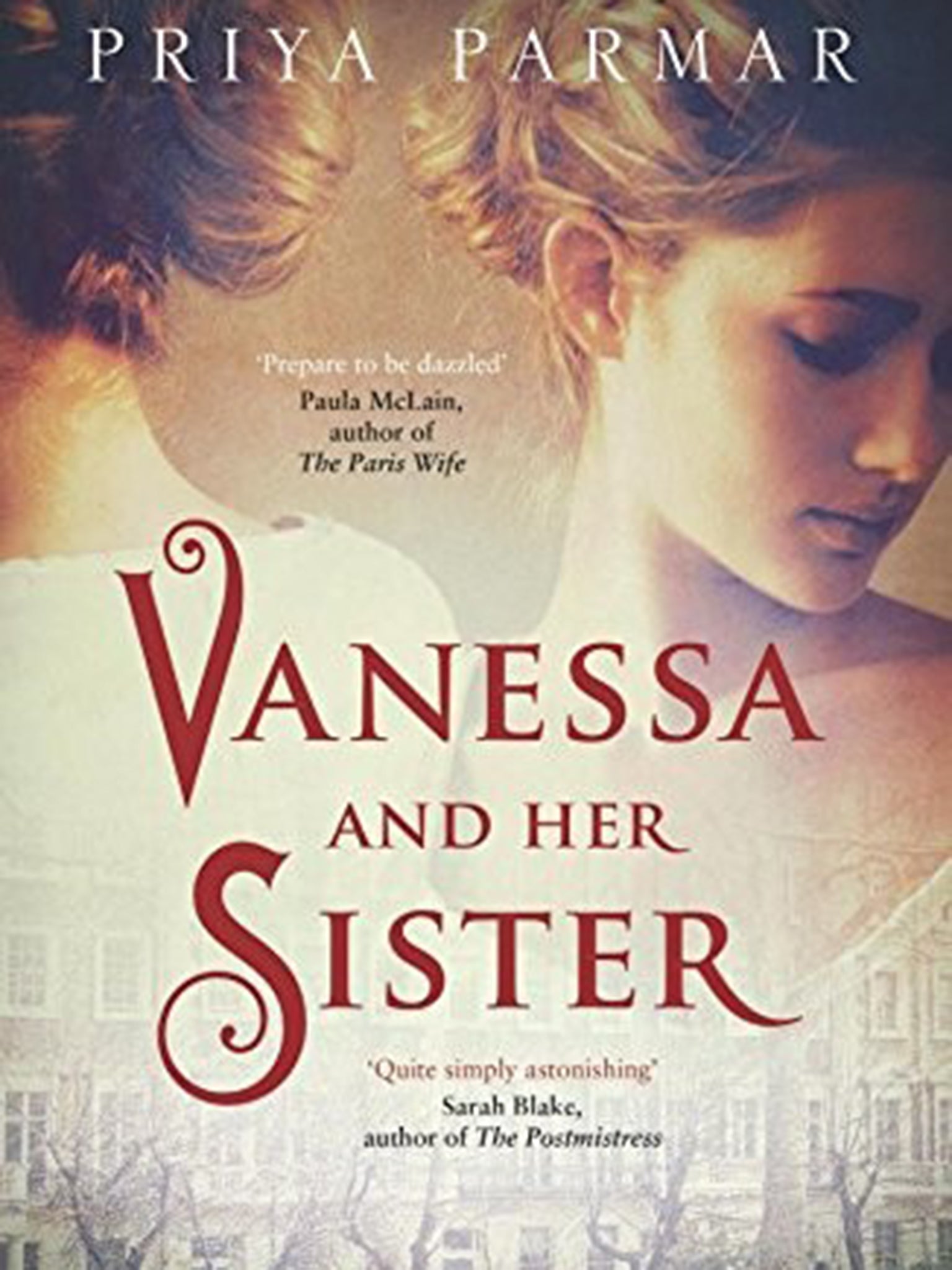Vanessa and her sister by Priya Parmar - book review: In Woolf's shadow
Deliciously gossipy while occasionally wonderfully prurient

Your support helps us to tell the story
From reproductive rights to climate change to Big Tech, The Independent is on the ground when the story is developing. Whether it's investigating the financials of Elon Musk's pro-Trump PAC or producing our latest documentary, 'The A Word', which shines a light on the American women fighting for reproductive rights, we know how important it is to parse out the facts from the messaging.
At such a critical moment in US history, we need reporters on the ground. Your donation allows us to keep sending journalists to speak to both sides of the story.
The Independent is trusted by Americans across the entire political spectrum. And unlike many other quality news outlets, we choose not to lock Americans out of our reporting and analysis with paywalls. We believe quality journalism should be available to everyone, paid for by those who can afford it.
Your support makes all the difference.It’s not often that you wish a book wouldn’t end, but Priya Parmar’s second novel about the relationship between the artist Vanessa Bell and her sister, Virginia Woolf, is so deliciously gossipy (while occasionally wonderfully prurient), and almost too beautifully written, to stop at 339 pages. The neediness, the control, the mind games, and ultimately the betrayal at the heart of this often poisonous sibling rivalry, is never less than fascinating.
Parmar gives us an unsure Vanessa Stephen, experimenting with her art while deferring to the brilliance of her younger sister, Virginia. After the death of their father, the four orphaned siblings – Vanessa, Adrian, Virginia, and Thoby – take a house in Bloomsbury and start to host “at homes” for their friends, who include EM Forster, Lytton Strachey, and Clive Bell. Bell has a passion for Vanessa but it’s only when Thoby dies suddenly and tragically that she accepts his offer of marriage. Cue Virginia’s perilous trembling on the edge of sanity; and then, something worse.
Through these public meetings with friends and artists, as well as private moments when she records her diary alone, we see inside Vanessa’s head as she falls in love with her husband, and we also see her irresistible glimpses of the waspish, gossip-fuelled Strachey and the buttoned-up Forster.
It’s easy to forget how outrageous and unconventional their behaviour was (half-brother George is horrified by “mixed” parties, especially if Vanessa is the only woman present), and Parmar reminds us well. We also see Vanessa the manager, the coper, the one who packs for Virginia’s holidays even when her sister is living separately. Parmar details with understanding, too, the terrible strain of coping with a sibling with a mental illness, the guilt, the anger, the terrible jealousy that erupts.
But, and this is a small complaint, her writing is almost too beautiful to give us fully the ugliness of these feelings. Vanessa, even when she discovers the extent of her sister’s (and her husband’s) betrayal, is still composed, still managing. Perhaps more subtly effective is Vanessa’s intellectual insecurity in the presence of Virginia and Strachey, or her dedication to her children with Bell, so deep that her husband finds no space for himself and betrays her.
Parmar brings the players to life in a way that appeals to both the heart and the head. Just a tiny little more bite, perhaps, and it would have been perfect. As it is, it comes pretty close.
Join our commenting forum
Join thought-provoking conversations, follow other Independent readers and see their replies
Comments